
Cethosia nietneri, the Tamil lacewing, is a species of nymphalid butterfly found in Sri Lanka and south India. The species name is after John Nietner who obtained specimens of the butterfly from Ceylon from which it was described.
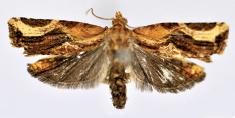
Isodemis stenotera is a moth of the family Tortricidae. It is known from China and Indonesia (Sumatra).

Ambulyx substrigilis, the dark-based gliding hawkmoth, is a species of moth of the family Sphingidae. It was described by John O. Westwood in 1847.

Epicephala microcarpa is a moth of the family Gracillariidae first described by Hou-Hun Li in 2015. It is found in the Chinese provincies of Guangxi and Hainan and in Mumbai, India.
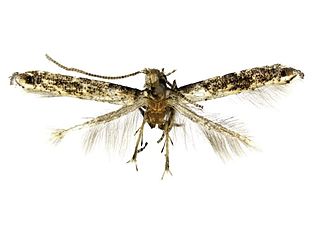
Epicephala laeviclada is a moth of the family Gracillariidae first described by Hou-Hun Li in 2015. It is found in the Chinese provinces of Guangxi and Hainan.
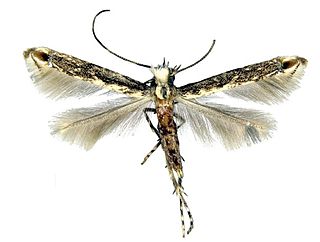
Epicephala tertiaria is a moth of the family Gracillariidae first described by Hou-Hun Li in 2015. It is found in the Chinese provinces of Guangdong and Guangxi.

Epicephala domina is a moth of the family Gracillariidae. It is found in China (Hainan).

Epicephala impolliniferens is a moth of the family Gracillariidae. It is found in China (Hainan).

Epicephala angustisaccula is a moth of the family Gracillariidae. It is found in China (Hainan).

Hieromantis rectangula is a moth of the Stathmopodidae family. It is found in China.

Hieromantis arcuata is a moth of the Stathmopodidae family. It is found in China.
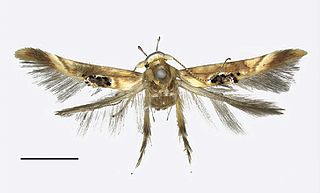
Hieromantis puerensis is a moth of the Stathmopodidae family. It is found in Yunnan, China.
Antaeotricha bicolor is a species of moth of the family Depressariidae. It is found in Brazil.
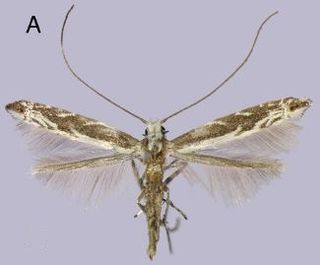
Epicephala anthophilia is a moth of the family Gracillariidae. It is found on a few islands with high elevation in the Ryukyu Archipelago (Amami Island and Okinawa Island). The host plant, Glochidion acuminatum is distributed throughout Southeast Asia from southern Japan to India, so this species is likely to be found in other parts of the host plant's range.

Epicephala lanceolatella is a moth of the family Gracillariidae. It is found on the Ryukyu Archipelago.

Epicephala perplexa is a moth of the family Gracillariidae. It is found on the Ryukyu Archipelago.
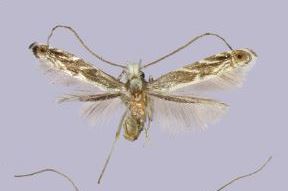
Epicephala obovatella is a moth of the family Gracillariidae. It is found in the warm temperate to subtropical regions of Japan and in Taiwan.
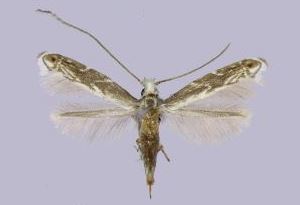
Epicephala corruptrix is a moth of the family Gracillariidae. It is found on the Ryukyu Archipelago.
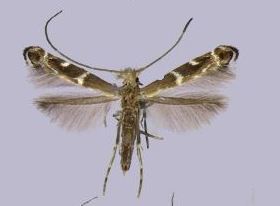
Epicephala anthophilia is a moth of the family Gracillariidae. It is found on the Ryukyu Archipelago.
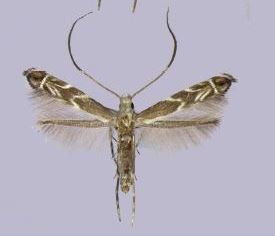
Epicephala nudilingua is a moth of the family Gracillariidae. It is known from three populations in Tochigi, Tokyo and Oita Prefecture, Japan. The host plant is widespread in the temperate regions of Japan and other parts of East Asia, so the species is likely to be found elsewhere.













